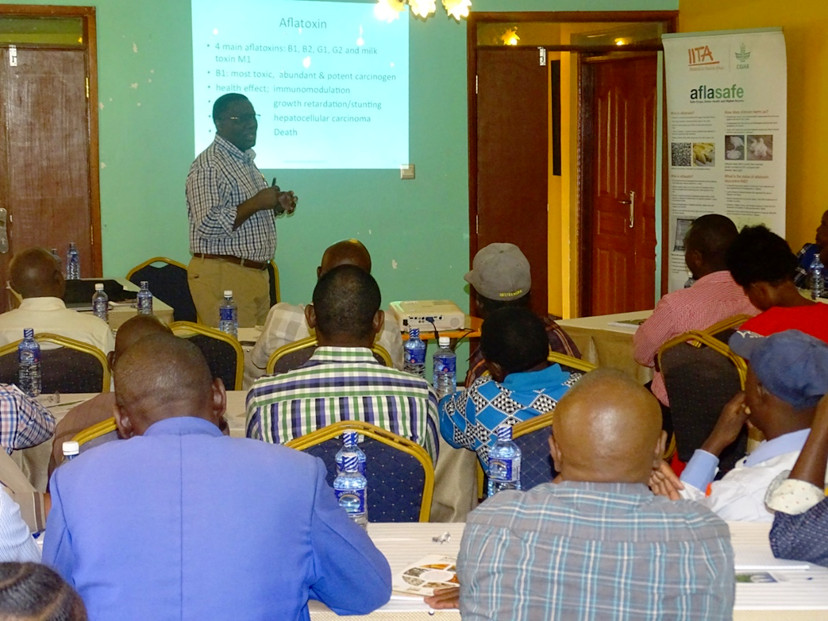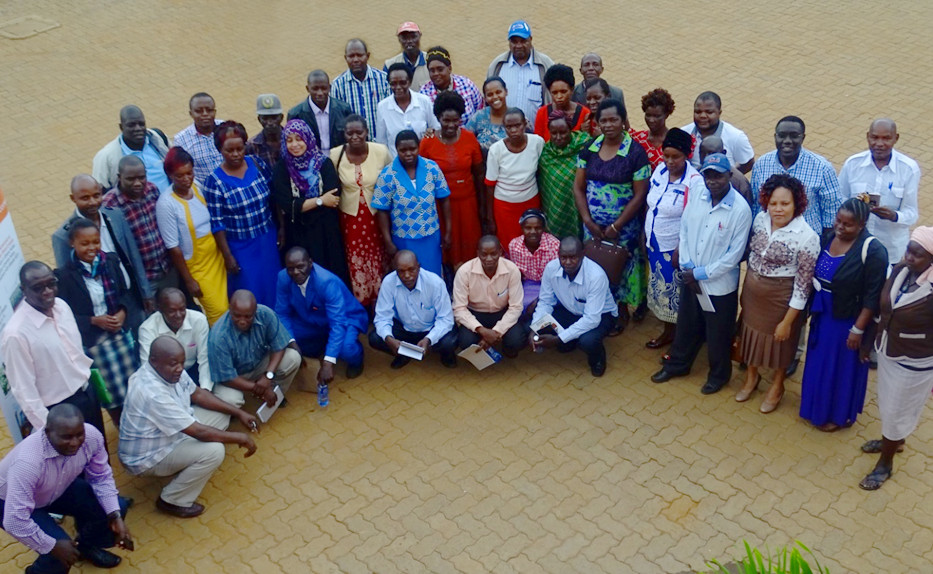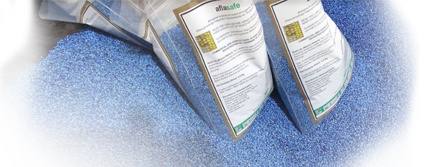It was time to share knowledge and an opportunity to contribute to aflatoxin management in Makueni County in June 2018, at a series of awareness-raising events

Periodic, severe outbreaks of aflatoxin contamination in Kenya cause tragic deaths, making Kenyans some of the world’s most aflatoxin-afflicted people. Yet, so hidden are the dangers of the toxin that much more awareness is needed, especially of the effects of long-term exposure and how solutions like Aflasafe can fight it.
To this end, IITA’s Aflasafe Technology Transfer and Commercialisation initiative (ATTC) and the Kenya Agricultural and Livestock Research Organisation (KALRO) organised a series of aflatoxin awareness-raising events in Wote and Makindu in Makueni County on 5th and 6th June. The events were in conjunction with the Makueni County Ministry of Agriculture, Livestock and Fisheries. Makueni is in Eastern Kenya – the heart of the country’s aflatoxin hotspot, where the need for action against contamination is most urgent.
Potential for success is just as high, given the nationally and internationally acclaimed ‘Makueni magic’. The County has a ground-breaking and precedent-setting public participation approach that other Counties are actively seeking to emulate. All this makes Makueni a premium choice for effective public awareness, more so when coupled with the Ministry’s keenness to support the purchase and use of Aflasafe.
One of the highlights of the event was a talk from renowned paediatrician Dr David Githanga, who has been carrying out research in Makueni. He presented his findings to the communities he has been working with. His study shows significant levels of aflatoxin in the blood of children aged 1–14. He further explained the chronic dangers to health and emphasised the importance of consistently fighting aflatoxin.

Farmers were excited to hear from the ATTC–KALRO team about Aflasafe KE01 as an effective solution to aflatoxin, while the County Director of Agriculture, Mr Amos Ndunda, gave a complementary presentation on other good agricultural practices. These are essential to optimising Aflasafe’s effectiveness.
Led and facilitated by KALRO, our dual-pronged approach in Kenya is to work with leadership at both national and County levels in spreading awareness on aflatoxin and promoting Aflasafe. Likewise, our media approach will target both the national and community media, such as local-language community radio.
LINKS
- Factsheet prepared by Dr David Githanga for Makueni County on the health impacts of aflatoxin (in Kikamba and English)
- Aflatoxin effects: Food safety and health | Impact on babies and children
- More news from Kenya: Aflasafe KE01 endorsed by Cabinet Secretary for Agriculture | Successfully combatting aflatoxin in Kenya’s food with Aflasafe on a large scale
- How to use Aflasafe KE01: leaflet | pictorial guide | training manual
- Catch up with the latest from Kenya or across Africa










